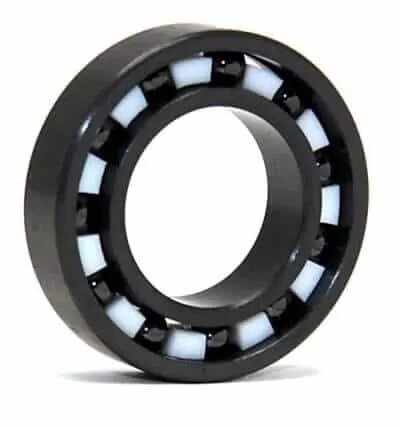In the world of modern engineering, the demand for high-performance components has led to significant advancements in material technology. Ceramic bearings, known for their exceptional durability, reduced friction, and increased efficiency, have emerged as a crucial innovation driving progress in various industries. Let's delve into the unique properties and applications of ceramic bearings that have revolutionized the engineering landscape.

Understanding Ceramic Bearing Technology:
Material Composition: bearing ceramic are primarily composed of advanced ceramic materials such as silicon nitride or zirconia oxide, known for their exceptional hardness, resistance to wear, and superior corrosion resistance compared to traditional steel bearings.
Friction Reduction: The inherent smoothness and low density of ceramic materials contribute to a significant reduction in friction and heat generation, resulting in improved mechanical efficiency and energy conservation in high-speed applications.
Applications in Diverse Industries:
Aerospace Engineering: Ceramic bearings play a critical role in aerospace applications, where their lightweight construction, high-speed capabilities, and resistance to extreme temperatures make them an essential component for various aircraft systems, including jet engines and helicopter rotors.
Automotive Technology: The automotive industry has adopted ceramic bearings in engines, transmissions, and wheel assemblies, capitalizing on their ability to withstand high rotational speeds, reduce fuel consumption, and enhance overall vehicle performance and reliability.
Industrial Machinery: From manufacturing equipment to power generation systems, ceramic bearings offer enhanced durability and operational efficiency, making them well-suited for demanding industrial applications where reliability and longevity are paramount.
Advantages and Considerations:
Longevity and Wear Resistance: Ceramic bearings exhibit exceptional resistance to wear and corrosion, resulting in extended service life and reduced maintenance requirements, making them a cost-effective long-term investment.
Temperature Stability: The thermal stability of ceramic bearings enables them to withstand high operating temperatures, making them suitable for applications where conventional bearings may deform or degrade under extreme heat conditions.
Specialized Handling Requirements: While ceramic bearings offer numerous benefits, their specialized manufacturing processes and delicate handling requirements may necessitate specific installation and maintenance protocols to ensure optimal performance and longevity.


Write a comment ...